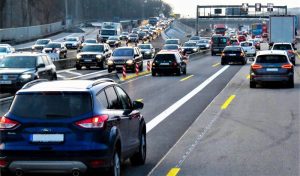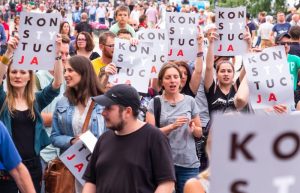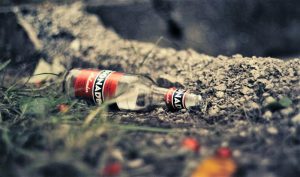Noise pollution
In small and large cities, pollution is an element that damages the citizens' lives, affecting their health and quality of life. Noise pollution is a type of environmental pollution present in many countries and there are many ways to perceive it.

Related topics
Environmental pollution, air pollution, atmospheric pollution, water pollution, visual pollution, light pollution, soil pollution
What is noise pollution?
Noise pollution is the excess of sound that negatively affects the environment. Noise, understood as a disturbing sound, is acoustic pollution and can generate irreversible negative effects on the hearing, physical and mental health of people and on the ecosystems where it is present. This type of pollution is the second most stressful of the urban environment and its main cause is produced by traffic.
The most common noise pollution is the noise generated around us, especially in streets and avenues. Many times, it goes unnoticed, but it also generates negative effects on human health, fauna or flora of an ecosystem.
Noise in factories, traffic, alarms are part of the noise pollution that we live in the day to day and is the second environmental stressor that negatively affects human health.
In some developed countries there are policies, laws and events to try to control the effects of noise pollution. An example of this are the noise laws that exist in some countries or the noiseless day, an annual event that takes place in some nations.
Causes of noise pollution
Among the causes that produce noise pollution we can mention the noise produced by urban transport, railways, llamas, construction work, ambulance sirens, tools, dogs barking or other domestic animals, loudspeakers, among others.
It has been determined that traffic is the main cause of noise pollution worldwide.
Effects
Among the effects produced by noise pollution we can mention the following:
- Stress.
- Headaches.
- Incitement to aggression.
- Loss of hearing ability.
- Concentration problems.
- Cardiovascular and blood pressure problems.
- Difficulties sleeping.
- Alterations in behaviour that may cause restlessness, insecurity, fear or irritability.
- Cardiovascular and respiratory diseases.
- Negative effects on memory.
- Loss of attention or concentration.
- In pregnant women it can cause hearing problems in the baby.
- In children it negatively affects their learning and socialization processes.
Many of these negative effects can cause irreversible damage to an ecosystem or its inhabitants.
Prevention
Noise pollution can be prevented or reduced by reducing unnecessary noise such as that caused by cars, motorcycles, outdoors and in our homes by avoiding the sounds of electrical appliances that we are not using.
It is also important to travel to places that are not noisy, improve sound insulation in your home, plant a tree (as they help absorb sound) and keep you informed of legislation that is focused on regulating this type of pollution in your country.
Other ways to prevent noise pollution are avoid making noisy events at night that interfere with the rest of the neighbors, avoid watching television or listening to the radio at full volume and the use of fireworks.
Sources
The sources of noise pollution can be located mainly in urbanized cities, among them the most frequent are:
- Vehicle noise.
- Noise from construction and industry.
- Railway noise.
- The noise of musical, food and entertainment venues.
- Noise from airports.
Unlike other types of pollution, it generates negative effects in the medium and long term.
Types of noise pollution
There are many types of hearing pollution according to their different degrees or levels of sound. These can be:
- From 50 to 90 decibels: At this level the human ear can develop discomfort.
- From 90 to 130 decibels: At this level there is permanent damage.
- More than 130 decibels: At this level the pain will cause immediate hearing loss.
Examples of noise pollution
Examples of noise pollution include the following:
- Street traffic in cities is one of the main sources of this type of pollution.
- The constructions generate many noises that affect, as much to the workers, as to the people who are around the work.
- Airports are another example of hearing pollution due to the noise constantly generated by airplanes.
- Trains and their stations are loaded with pollution.
Other real examples of noise pollution can be found in the world’s noisiest capitals. These are: Sofia, Bucharest, Tallinn, Dublin, Oslo and Prague.
How to cite this article?
Briceño V., Gabriela. (2019). Noise pollution. Recovered on 23 February, 2024, de Euston96: https://www.euston96.com/en/noise-pollution/









